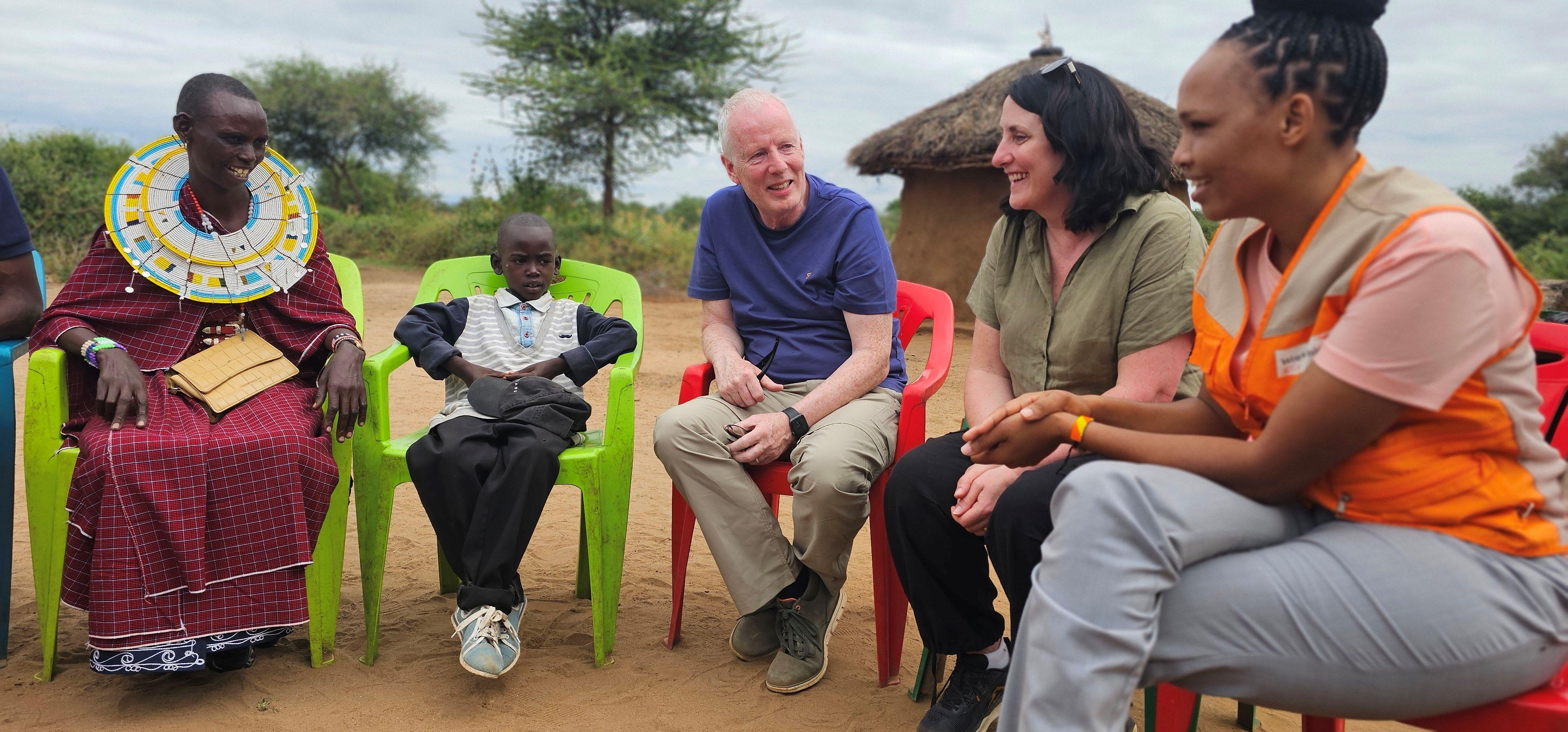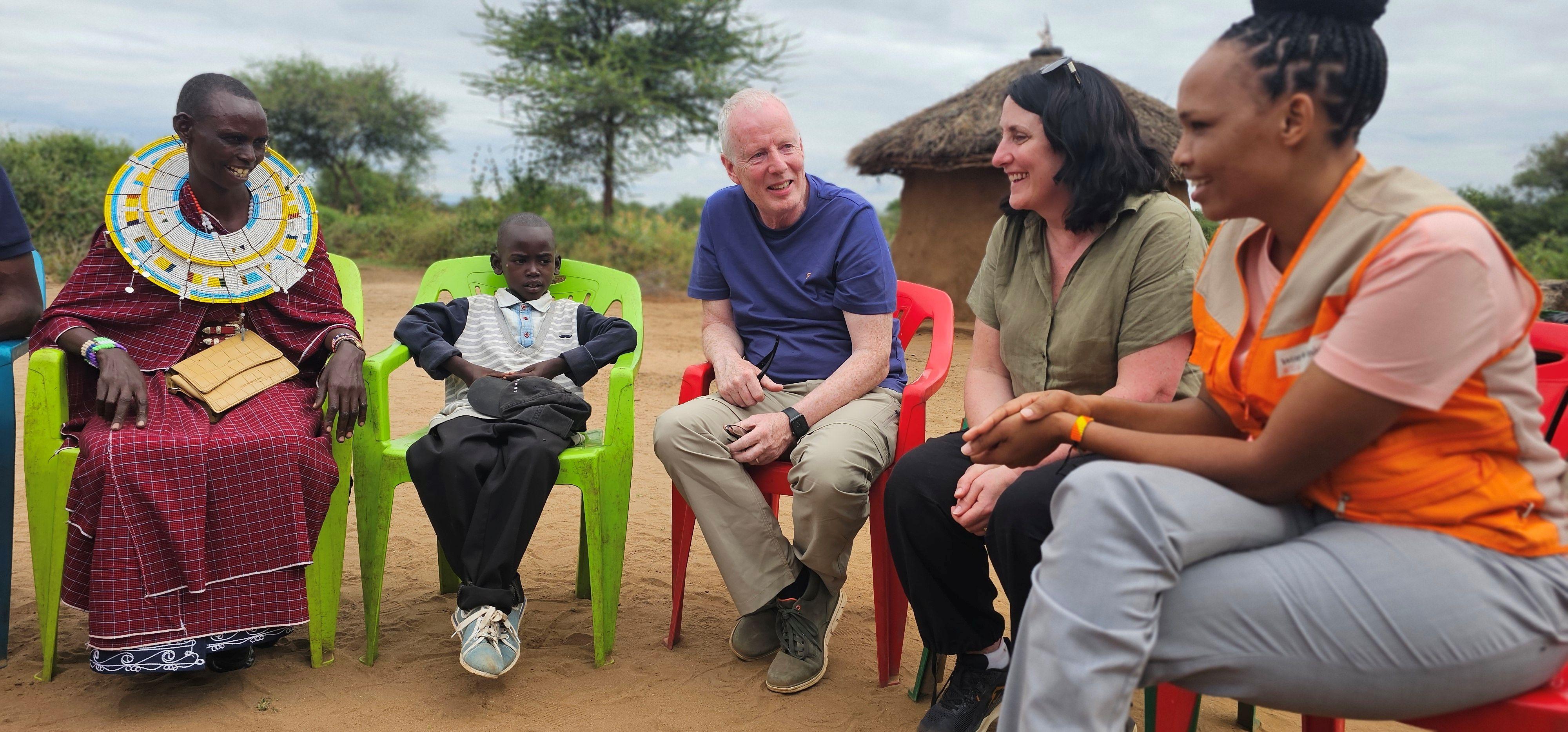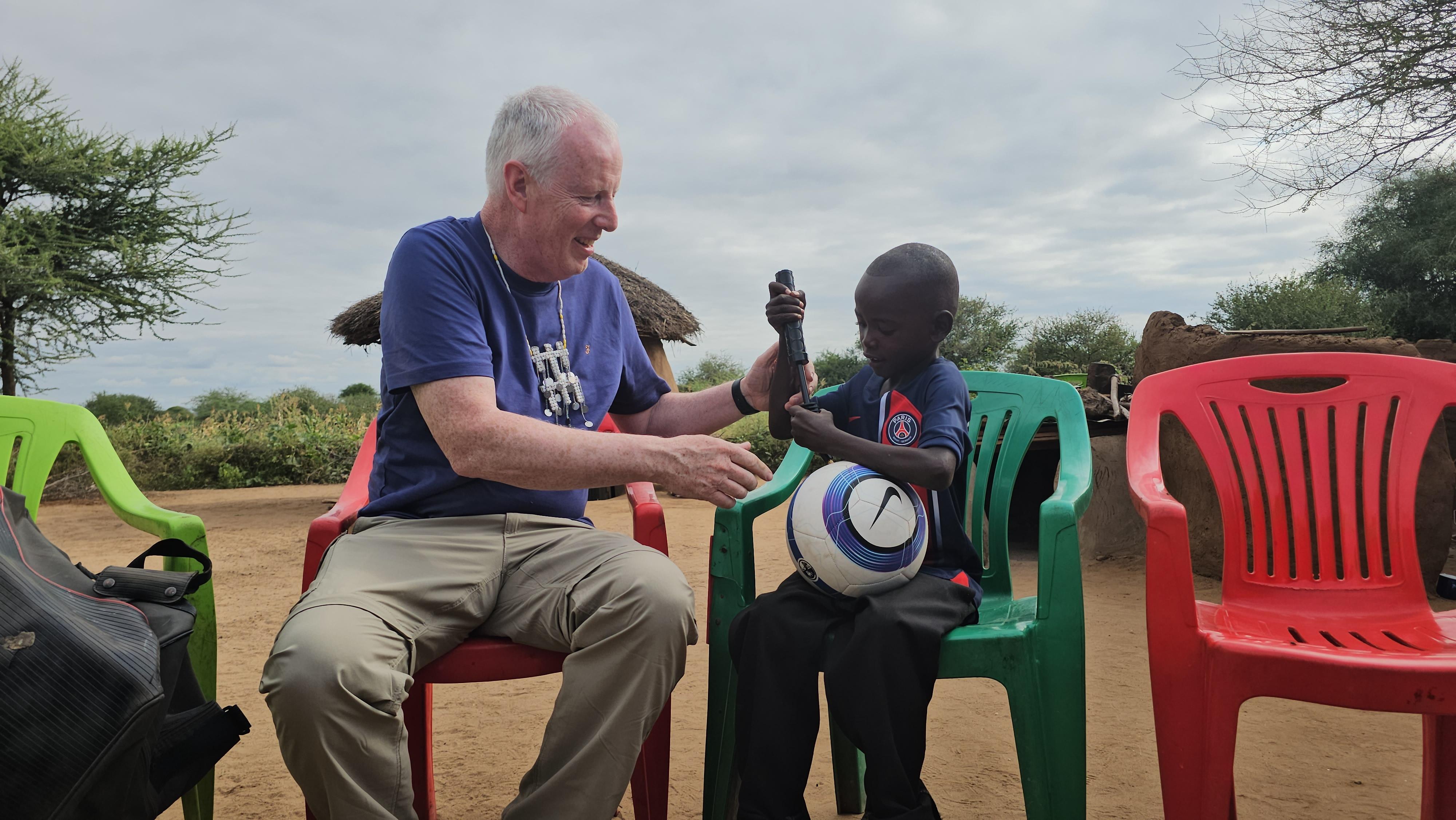
Cork Couple’s Journey to Tanzania
Cork Couple’s Journey to Tanzania
A Firsthand Look at Hope, Hardship, and the Power of Sponsorship
Last month, John and Fionnuala Desmond from Inniscarra, Cork travelled to Tanzania with World Vision Ireland to meet their sponsored child, Faraja, and witness the impact of their support on the ground. What they experienced was both deeply moving and eye-opening.
Their journey began in Endabash and Lake Eyasi, two long-standing Area Programmes where World Vision has been working for over 15 years. There, John and Fionnuala witnessed the powerful, long-term impact of sustained support—clean water flowing from taps, well-maintained schools, and children thriving in safe, nurturing environments. “The children were so proud of their running water and working toilets,” Fionnuala recalled. “They even had a handwashing song!”
From there, the journey continued to Oljoro, a newly launched Area Programme supported by World Vision Ireland. The contrast was stark. “We saw women and children collecting unclean water from a nearly dried-up riverbed after walking up to 15km,” John said. “The school had over 1,000 children, barely any toilet facilities, and again children were collecting and drinking water from an unclean river with livestock in the water upstream.”
The couple also visited a medical centre in Oljoro, where one doctor and two nurses serve thousands. “The doctor told us that 75–80% of the diseases they treat are water-related,” John said. “It was a stark reminder of how critical clean water is.”

Despite the challenges facing the community in Oljoro, meeting their sponsored child, Faraja, was a standout moment of the trip. “We arrived in a remote, arid area with a few neat mud huts,” Fionnuala shared. “Faraja’s mum and her neighbours came to welcome us. She’s a tall, graceful Maasai woman, a widow raising her children on a small plot of land. Her gratitude was overwhelming—her eyes welled up when she spoke.”
Faraja, just seven years old, was shy but clearly delighted by the gifts they brought. “The soccer jersey with his name on the back got a brilliant reaction,” John said. “But it was the soccer ball that really hit the spot. Their joy was unforgettable.” Fionnuala added, “We left feeling delighted and privileged that we were able to make a positive difference in the lives of such a gorgeous family.”
Their final visit to the ARDHI Tanga project, an initiative supported by the European Union, showed what’s possible when a community’s basic needs are met. John observed a clear shift in focus toward long-term, sustainable development. “We saw families involved in savings groups, and engaging in local enterprises like beekeeping, and sustainable charcoal production, tree planting, orange growing, and cooking methods”.
Reflecting on the trip, the Desmonds admitted they had gone in with some doubts. “We wondered how much of the money actually reaches those in need, and whether the scale of the problem was simply too vast to make a real difference,” John said. “But meeting Faraja changed that. These are individuals with hopes and dreams. Meeting Faraja and seeing firsthand the impact that child sponsorship can have on his life brought it all into focus.”

The couple saw firsthand how World Vision’s child sponsorship programme is designed to create real, sustainable, and long-term change within communities. “We saw how they engage with the poorest communities—collaborating with village leaders, remaining child-focused, making no distinction based on religion, supporting basic needs like clean water, prioritising education and equal opportunities for girls, and encouraging local enterprise,” John said.
They were equally impressed by the dedication and professionalism of the World Vision team. “They’re knowledgeable, open, and deeply committed to what they do,” Fionnuala said. “They make the most of every resource.”
Their message to others considering sponsorship? “We can’t recommend it enough,” John said. “If you saw a child in need in your own community, you’d help. This is no different—except the child lives in another part of the world. And your support can truly transform their life.”